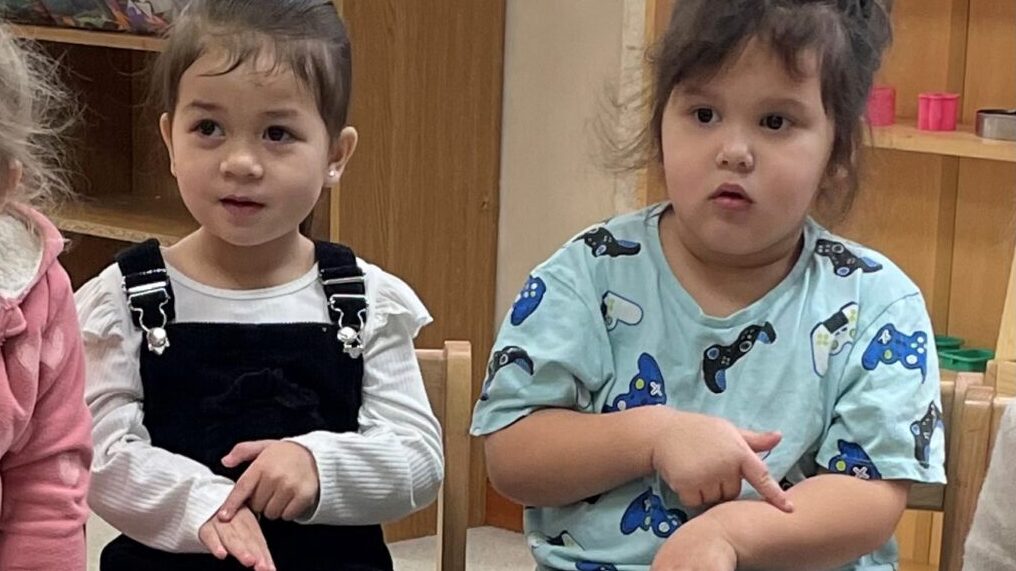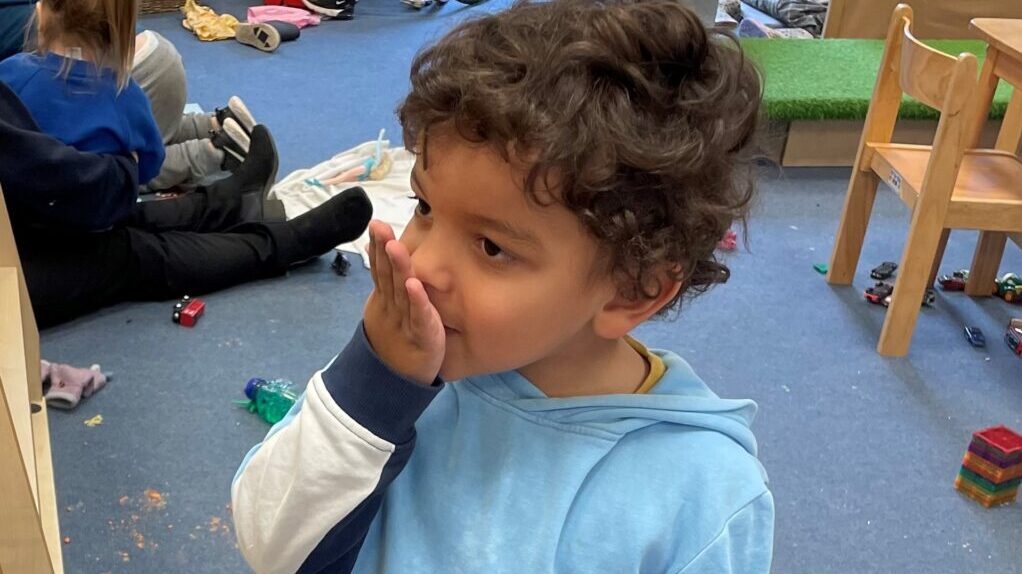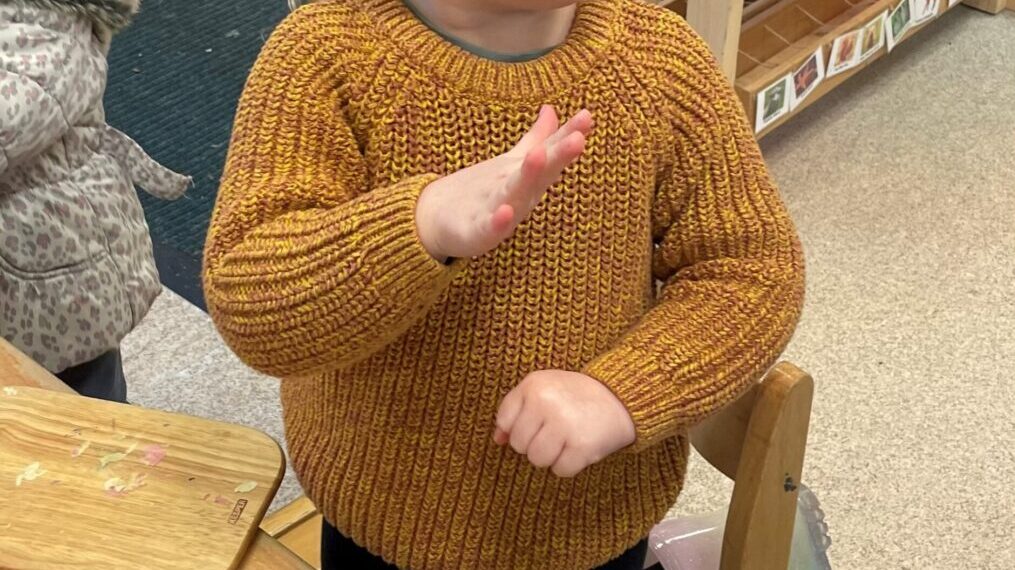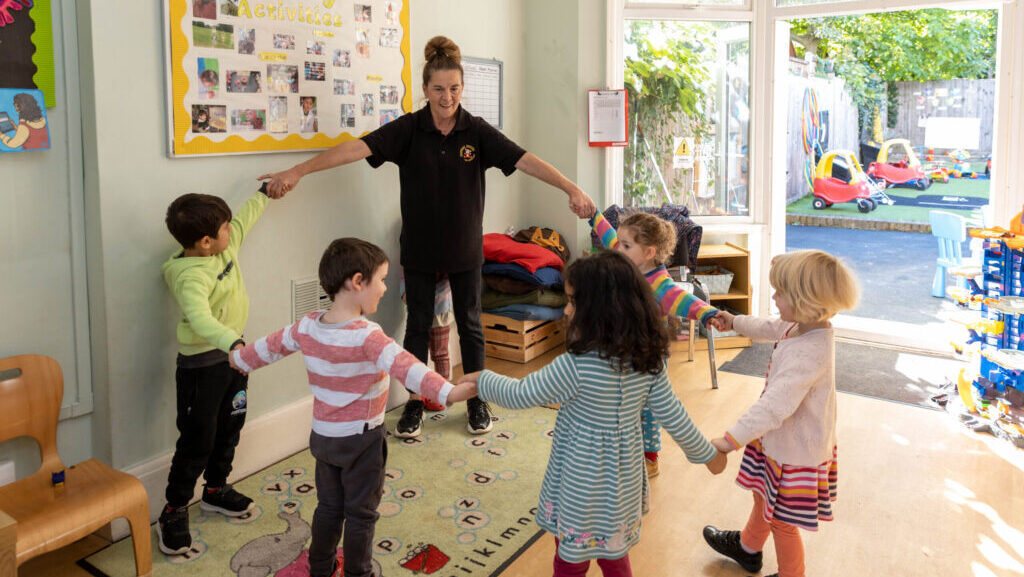Following the launch of Christie & Co’s Business Outlook report, Nick Brown, head of brokerage – childcare & education at…
Sign up to signing
A government-commissioned review calls for Makaton training to be encouraged in the early years sector. Charlotte Goddard finds out how signing can promote child development

Education charity NCFE’s review into skills gaps in the sector, published last year, cited “understanding Makaton” as a particularly valuable area of training. Practitioners, parents and children may be most familiar with Makaton as the system of signs, symbols and speech used by Mr Tumble on the CBeebies’ programme Something Special. Each word or concept is represented by a related sign or gesture, and a symbol or picture.
The Makaton system derives its name from the first letters of the names of the team that developed it in 1979: Margaret Walker, Katherine Johnston and Tony Cornforth.
Makaton, which has a core vocabulary of 450 concepts and an extended vocabulary of more than 11,000, is increasingly being used by nurseries to support the communication and language development of children with and without special needs and disabilities (SEND). The programme helps children develop speech, attention and listening skills, supporting them to make themselves understood and understand what will happen next. It allows children with and without language difficulties to communicate, learn and play together more easily
With many nursery managers noticing an increase in communication and behaviour difficulties post-pandemic, it is clear that training in this area could have a huge impact. “I think Makaton would be a valuable addition to a nursery practitioner’s skills as there are so many children who could benefit from using it,” says Mandy Wilding, education officer (early years) at SEND charity nasen. “I would encourage nurseries to use Makaton in their practice as part of their universal provision to make their setting more inclusive for all children. Many PVI [private, voluntary or independent] settings use it throughout and introduce a new sign each week for all the children to learn.”
Outstanding-rated Steady Steps Nursery and Pre-School in Gosport has a Makaton co-ordinator and a display explaining the programme to parents in each of its rooms. “It is a way for preverbal and nonverbal children to communicate with us, and it gives us extra support when we are asking them to do something,” says Di Duffield, deputy early years practice manager.

The whole team took part in Makaton training five years ago delivered by the local area inclusion officer and funded by the local authority. Makaton is used as part of the everyday routine, such as during nappy changes, and children are introduced to new signs every week. Steady Steps decided to use only signs, as it found the symbols too fiddly. The ‘signs of the week’ are linked to the ‘over and over book’, which follows children’s interests and is read every day for a week to promote language development.
When the nursery children read Pants by Giles Andreae, for example, the signs of the week were ‘nappy’ and ‘toilet’. “A lot of children are toilet training and we want to make pants an exciting thing to wear,” says Duffield.
In the pre-school the signs were ‘tree’ and ‘flower’ because the children have expressed an interest in growing things. “It is not just about making the sign, it is also about getting down to the children’s level, using positive body language and eye contact,” explains Duffield.
Steady Steps’ most recent Ofsted inspection noted “the support staff offer for children’s communication and social skills is exceptional”. The setting has seen an improvement in children’s language and behaviour since introducing Makaton. “Children are better able to understand what we are asking them to do and more able to communicate their needs, making them less frustrated,” says Duffield. Children use signs to communicate with each other as well as with staff, which is especially useful for children with English as an additional language.

The Makaton Charity owns the copyright for Makaton signs and symbols and its website has free resources such as the ‘sign of the week’, songs, stories and games. Nurseries can pay for enhanced membership which provides access to a complete library of resources.
Makaton training is available online and face-to-face at Levels 1 to 4, with each level taking around eight hours to complete. Level 1 introduces the programme and teaches around 120 signs and symbols to support communication about a child’s immediate needs, while the following levels cover concepts such as the outside world, feelings and time.
The Makaton Charity website allows nurseries to search for individual or group training. Courses are also available from training providers such as Busy Bees Education and Training, which offers online workshops. Some settings may be able to access free or subsidised Makaton training through their local authority. Slough Borough Council, for example, offers Makaton training via Zoom while Waltham Forest recently subsidised training for a number of early years providers.
Jane Bain, manager at Cambusbarron Village Nursery in Stirling, trained with a Makaton tutor some years ago, and the whole staff team took part in online Level 1 training last year. “Online training is convenient, but I think it would have been better if it was face-to- face, so we could interact together as a team,” says Bain.
Training must be delivered by Makaton- registered tutors following a specific format, but Bain feels nurseries and children would benefit if the charity was more flexible in its approach. “The Makaton Charity has a protocol about which words you learn in which order, which is not tailored to the individual needs of a setting,” she says. “We are an outdoor-focused early years setting, so knowing how to sign mud and wellies is more relevant than coffee, cigarettes or some of the more culturally specific words.”
However, children have benefited from the training. “Having a visual as well as a verbal element really supports communication, especially for our children with additional support needs,” she explains. “It is also quite good when you are in a noisy setting – if you say and sign ‘sit down’ you can get the message to the other side of the room.”
Communication support has been particularly vital post-pandemic, as many children missed out on a crucial stage of development, says Duffield. “Everyone was wearing masks so children couldn’t see facial expressions, the shapes the mouth forms when speaking,” she says.
“We find there has been an increase in social and emotional issues since Covid,” says Bain. “We are noticing a big difference when it comes to communication skills, such as attention, listening eye contact, and we find Makaton helps.”
Access free certificated CPD sessions on topics including Neuroinclusion in the early years at the Nursery Managers Show at NEC Birmingham, 30 June to 1 July.
Latest Features
Lisa Nichols, early years quality manager for Monkey Puzzle Day Nurseries, explains why a robust audit process is an essential…
Leena Birdi, partner at law firm Birdi & Co, assesses the impact of changes to employer contributions to National Insurance…





